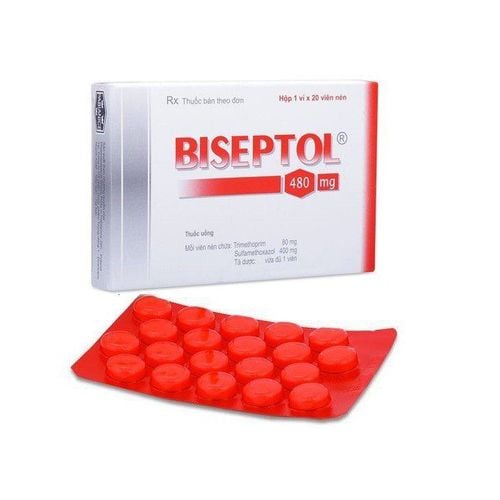Dysentery is a bacterial or amoebic infection in the large intestine. In most cases, the infection is asymptomatic or presents with mild diarrhea, some cases can progress to mild chronic diarrhea or severe dysentery. So, how should dysentery in adults be treated?
1. What is Dysentery?
Dysentery is a type of intestinal infection causing severe diarrhea, often accompanied by blood or mucus in the stool. The diarrhea typically lasts for 3 to 7 days. Most dysentery cases are caused by bacteria or anaerobic amoeba, such as Shigella, Campylobacter, Salmonella, or E. coli.
Common symptoms include abdominal pain or cramping, nausea, vomiting, fever, dehydration, headaches, fatigue, weight loss, and in severe cases, can be life-threatening if untreated. Symptoms like high fever and cramping can last for 4-8 days, with severe cases potentially lasting 6 to 8 weeks. In some instances, symptoms may resolve in just 3 days.
The primary causes of dysentery are poor hygiene, such as consuming contaminated food or water, poor hand hygiene, swimming in polluted water, or close contact with an infected individual.
2. How dangerous is dysentery to health?
Since dysentery is a contagious disease that spreads quickly through contact, if left untreated, it can lead to severe complications and even death. Here are some potential complications of dysentery:
- Reactive arthritis: Occurs in about 2% of cases and can cause joint pain, painful urination, eye irritation. The joint pain may be very severe and can last for months or even years.
- Bacteremia: Rare but more common in individuals with compromised immune systems, such as those with HIV or cancer.
- Seizures: More common in young children, causing generalized seizures that typically resolve on their own without treatment.
- Hemolytic uremic syndrome (HUS): Caused by certain bacteria like Shigella or S. dysenteriae. The bacteria release toxins that destroy red blood cells, block them from entering the kidneys, and cause anemia, kidney failure, or low platelet count. This is a severe manifestation of dysentery.
- Dehydration: Common in children under five years old, dehydration can be life-threatening if not addressed.
- Other serious complications: Dysentery can lead to liver abscesses or parasitic infections spreading to the lungs or brain.
3. Treatment for dysentery
Mild cases of dysentery can typically be treated with increased fluid intake, rest, and over-the-counter medications like bismuth subsalicylate (Pepto-Bismol) to alleviate stomach pain and diarrhea. In more severe cases, antibiotics are required. If symptoms persist after six days of antibiotic use, the bacteria may have developed resistance, and medical consultation and blood tests are recommended.
Common antibiotics for dysentery include metronidazole and tinidazole, which target parasitic infections. In severe cases, intravenous fluids may be administered to replace lost fluids and prevent dehydration.
4. Home remedies for dysentery
The best prevention for dysentery is consuming hygienic food, maintaining cleanliness, and avoiding contaminated environments. Below are some simple home remedies to help treat dysentery and protect yourself and your family:
- Drink at least two glasses of fresh orange or lemon juice daily.
- Incorporate bananas into your diet, as they help soften stools and regulate bowel movements.
- Drink a mixture of honey, milk, and lemon or black tea.
- Use boiled or purified water for drinking.
- Only consume thoroughly cooked food.
- Wash hands with soap, especially after using the restroom.
- Avoid swallowing water while swimming.
- Avoid drinks with ice, bottled soda, or carbonated beverages.
- Peel fruits and vegetables before consumption and avoid unpasteurized dairy products.
- Patients with acute dysentery should opt for bland, soft, liquid, and easily digestible foods that are low-fat, low-fiber, nutritionally rich, and non-irritating.
- Recommended foods are rice, lotus seeds, glutinous rice, noodles, yam, barley, green beans, and others known to reduce symptoms.
- In cases of frequent diarrhea, patients should consider thick rice porridge and eat in small portions throughout the day. Fresh fruits or vegetables can be pureed or juiced for easier consumption. Besides, garlic, lotus root, tea leaves, and guava are also recommended, which are all foods with antimicrobial properties that can aid in dysentery treatment. Individuals suffering from dehydration due to diarrhea may drink oral rehydration solutions or saltwater in multiple doses.
- Cook dandelion, bitter melon leaves, or pigweed into soups or porridge without fat to aid recovery from dysentery.
The information above highlights essential details about dysentery and how to effectively treat it in adults. If dysentery persists for several days and worsens, seeking medical attention promptly is recommended for proper diagnosis and treatment
To arrange an appointment, please call HOTLINE or make your reservation directly HERE. You may also download the MyVinmec app to schedule appointments faster and manage your reservations more conveniently.








